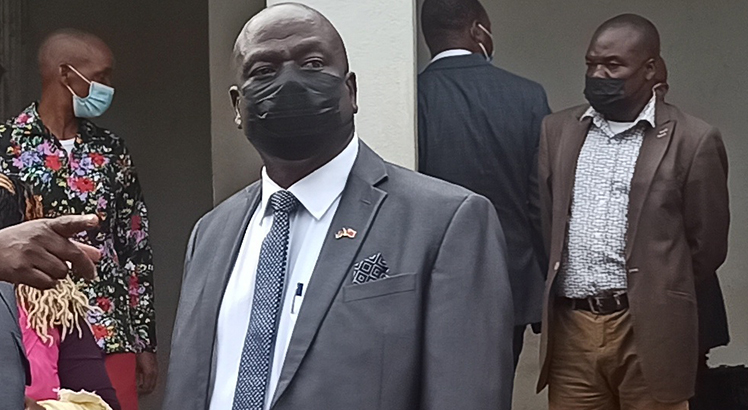The International Monetary Fund (IMF) says Malawi’s public debt will worsen to 74.5 percent of nominal gross domestic product (GDP) in 2023 from 73.3 percent this year.
In its Economic Outlook for sub-Sahara Africa released on Friday, the global lender of last resort said that overall fiscal deficit, including grants, will move from negative 7.1 percentage points this year to negative eight percentage points in 2023.
Central business district
in Blantyre
Economists have since expressed worry with the situation, saying it will lead to debt overhang, a situation where the debt burden will be too huge and won’t allow the country to take on additional debt to finance future projects.
At the moment, Malawi’s public debt has hit K6.38 trillion, representing 63 percent of the country’s nominal GDP and is way above the internationally recommended 60 percent, pushing the country into debt distress.
Reads the report in part: “With the rapid pickup in global inflation, monetary policy normalisation in advanced economies has sped up. In this context, capital flows have remained precarious.
“For the first half of the year, outflows from sub-Saharan Africa rivalled those associated with the onset of the Covid-19 crisis or the 2015 commodity price shock, adding to pressure on exchange rates, with the largest depreciations observed in Ghana, Malawi and Sierra Leone.”
The IMF has since advised that credible medium-term fiscal frameworks, including effective debt management, can reduce exposure to shifts in risk sentiment and can lower borrowing costs.
In an interview, economist Gilbert Kachamba said it was not surprising that Malawi and southern Africa will experience slower growth as the global economy has been facing a lot of challenges recently.
He said: “The implications to Malawi are that we have tough times ahead and if not managed properly, it will be tough than what we are experiencing now. Inflation will continue to rise as the prices of food and energy [fuel] continues to rise.”
Kachamba said poor economies like Malawi may not run away from borrowing as they resort to debt as a short-term means to mitigate the crisis.
“Therefore, firstly, we need to focus on food production so that the food price should at least be stable in the coming months. Secondly, we need to use the resources strategically so that we have undisturbed supply of crucial commodities such as fertilisers, medicines and fuel—so that impact of the shock should be minimised,” he said.
Catholic University economics lecturer Hopkins Kawaye agreed that too much debt will lead to “debt overhang”.
“So, if we keep borrowing, then taxes will keep on rising to collect revenue to pay back these loans. This causes inflation and the purchasing power of consumers will be lessened,” he warned.
Efforts to speak to Minister of Finance Economic Affairs Sosten Gwengwe proved futile yesterday, but in the 2022/23 Budget Statement, he agreed that the high level of external debt was a matter of concern for government.
The minister said particular attention this year will be paid to make external debt sustainable.
The post Malawi’s public debt, deficit to worsen—IMF appeared first on The Nation Online.
 Moni Malawi
Moni Malawi 

